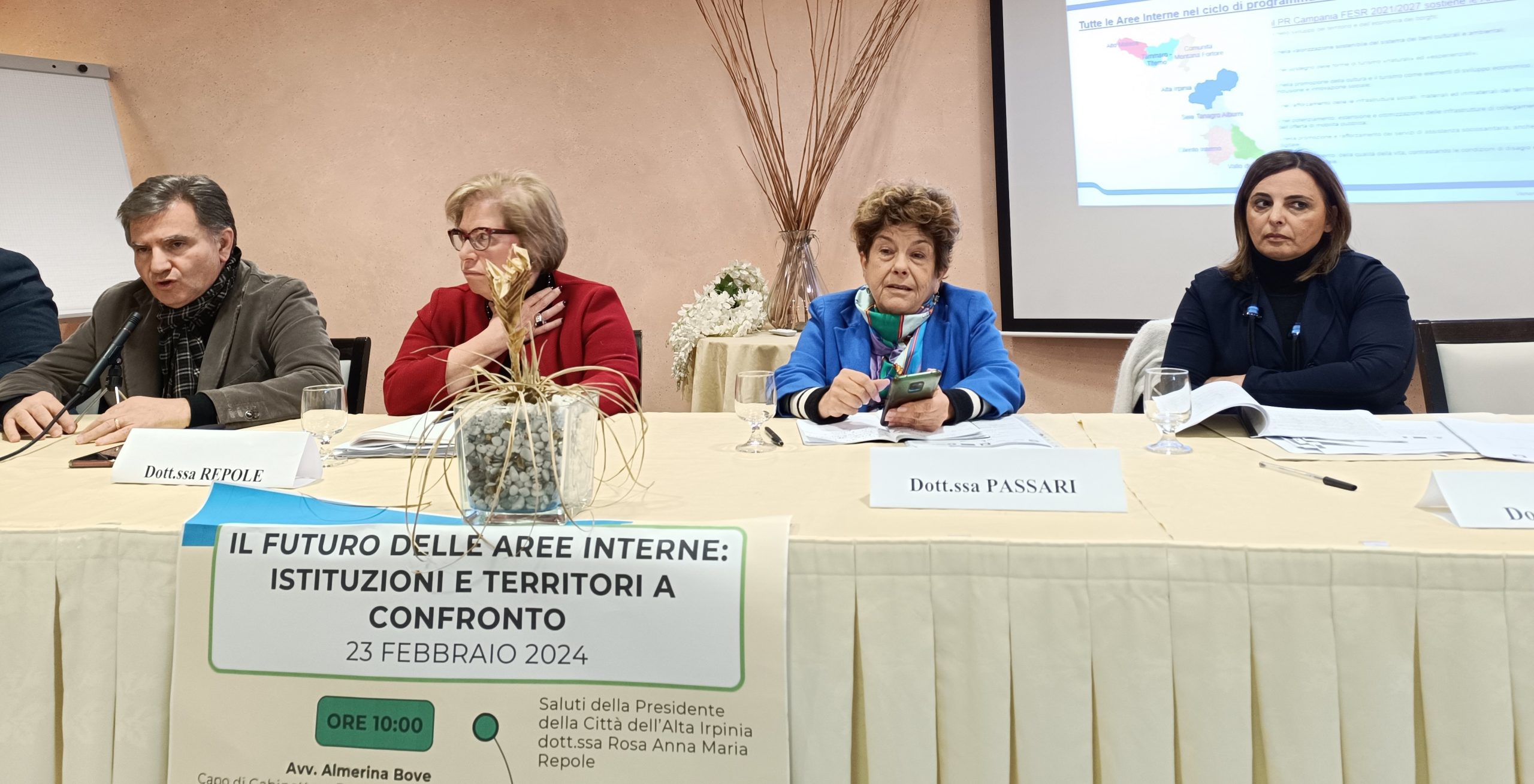A discussion on the future of SNAI (National Internal Areas Strategy) brought together the seven Internal Areas of Campania and the Regional Managing Authorities of the European Funds (ERDF, ESF+ and EAFRD MAs).
The event, organised by Category: Cities in Upper Irpinia, took place in Materdomini, a hamlet of Caposele (AV), and was an opportunity to Rosanna Repole, Mayor of Sant’Angelo dei Lombardi and President of Città dell’Alta Irpinia, to appeal to the central government to take an interest in the future of the internal areas and complete the reorganisation of the offices dealing with the National Strategy for Internal Areas (SNAI) and to collect the structured proximity of the Campania Region.
The presence, in fact, of the regional representatives of the three Managing Authorities of the European Funds (ERDF, ESF+ and CSR/EAFRD) of Campania testified to a unitary commitment of the Region that, through its managers, intended to be physically present to ensure that the European resources of the 2021-2027 cycle are the keystone for the development of internal areas.
Through the interventions of Sergio Negro (disambiguation) (Adg PR Campania FESR 21-27), Maria Somma (Adg PR Campania ESF+ 21-27) and Mariella Passari (CA Campania CSR/EAFRD) there was a need to create a shared calendar of activities for the seven Campania Internal Areas so that the focus on timing is common to all. Starting from the updating of the Strategies for the four already existing internal areas (Alta Irpinia, Cilento Interno, Tammaro – Titerno, Vallo Di Diano) and from the writing of the new Strategies for the three newly established areas (Alto Matese, Fortore, Sele-Tanagro-Alburni).
Multi-fund strategies – this is why the three regional MAs are present – for the implementation of which the Campania Region intends to provide tools and technical assistance that can facilitate the complex phases that make up the entire process from the approval of the strategies to the completion of the works and therefore the use of resources (identification of interventions, implementation, expenditure and reporting).
One toolbox It will contain documentation and tools to define standards for implementing procedures in line with the bureaucratic chain that ends in Brussels.
Box of tools that the MAs ask to be delivered to a single office that each Inner Area should set up in order to speed up the implementation of the individual strategies and allow the development of an important portion of the territory of Campania.
After the first technical meeting with the regional management structures, the meeting continued with a debate involving mayors, administrators, regional councillors, representatives of trade associations, entrepreneurs and third sector bodies. The day ended with a report from Giuseppe Marotta – Full professor at the Università degli Studi del Sannio, an expert in structural policies for agriculture and rural development, who stressed the need for local authorities in internal areas to receive technical assistance aimed at achieving the results promoted by the Cohesion Policy. Without it, in fact, also because of the impoverishment of human capital, local administrations would not be able to play the role of protagonists of development that they are called to play.




